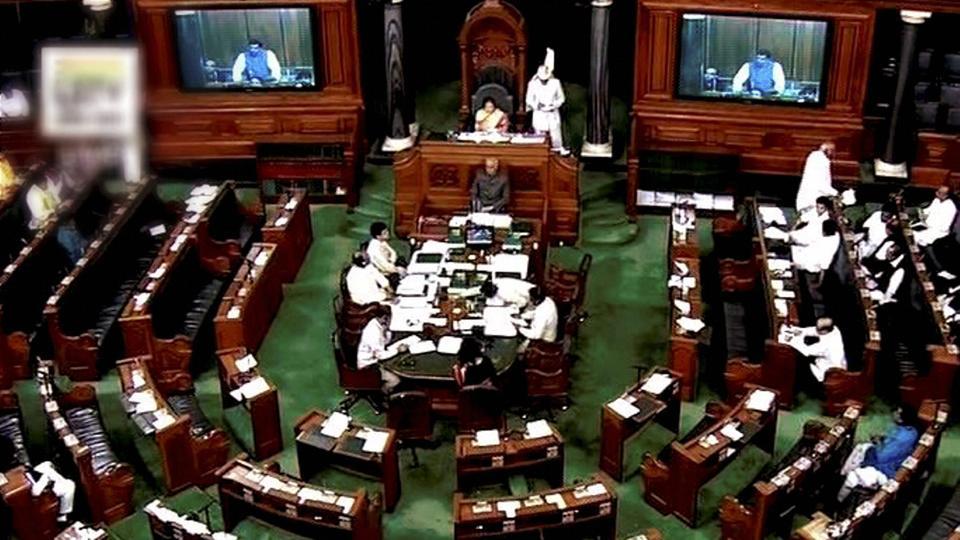
Parliament Passes The Mental Health Care Bill, Which Decriminalises Suicide Attempts; Know About It
28 March 2017 5:07 AM GMT
The Mental Health Care Bill, 2013 was passed in the Lok Sabha on 27 March. Among other things, the Bill decriminalises suicide and provides health care for mentally ill people.
The Bill (the full text of which can be read here) was introduced on 19 August 2013. The Rajya Sabha approved the Bill in August 2016 to replace the Mental Health Act 1987.
The Bill defines mental illness as “a substantial disorder of thinking, mood, perception, orientation or memory that grossly impairs judgment, behavior, capacity to recognize reality or ability to meet the ordinary demands of life, mental conditions associated with the abuse of alcohol and drugs …” As reported by Hindustan Times, approximately 6% to 7% of the nation’s population suffers from some kind of mental illness while 1% to 2% suffer from an acute condition.
Source: hindustantimes
Decriminalisation of suicide
One of the major highlights of the Bill is the decriminalisation of suicide, stating that person who attempts to commit suicide should be presumed to suffer from severe stress, and shall not be punished. It will hence be the duty of government to provide care, treatment and rehabilitation to such a person “in the least restrictive environment possible, and in a manner that does not intrude on their rights and dignity”, as per the Bill. This will help to reduce the re-occurrence of such an attempt.
The Bill states, “Notwithstanding anything contained in Section 309 of the Indian Penal Code, any person who attempts to commit suicide shall be presumed, unless proved otherwise, to have severe stress and shall not be tried and punished under the said Code”.
Rights of persons with mental illnesses
The Bill states that every person shall have the right to access mental health care and treatment from services run or funded by the government. The right to access mental health care includes affordable, good quality of and easy access to services.
Union Health Minister JP Nadda said, “The earlier Act focused on regulations but this new Bill is patient-centric and after wide consultations, we have ensured that the patient’s interest is safeguarded”. He further said that this was a “right-based bill” that gives the right to patients so that they are not denied treatment or suffer from discrimination. The Bill assures free treatment for people who would like to access mental healthcare, if they are homeless or poor, and even if they do not possess a Below Poverty Line (BPL) Card.
Source: dawn
Advanced Directive
The Bill also allows people to provide advance directions on the kind of treatment that they prefer in case of being diagnosed with mental illness in future. They can also nominate a representative. The advance directive has to be certified by a medical practitioner or registered with the Mental Health Board. Further, all insurance companies are required to provision policies for the mentally ill.
Special Provisions for Women and Minors
The Bill further includes special provisions for women and their health, including that they cannot be separated from their children unless it is absolutely necessary. Nadda says, “If a child has to be separated from the mother, a reason has to be provided. This Bill is mother-centric, human-centric”.
Electro-convulsive therapy for minors and sterilisation of patients has been prohibited as per the Bill. Even if adults are to be given electric therapy, it should be given under anaesthesia and with muscle relaxants. Moreover, patients can also not be chained in any way.
“A progressive Bill”
The Bill was formed after consultation with various stakeholders, including academic experts and the political establishments, and it focuses on community-based treatment. Nadda said, “Persons who will not adhere to it will be liable to penalty and imprisonment. This is a very progressive Bill”.
The Logical Indian community hopes that with this amendment, there is more awareness and acceptance of mental illnesses amongst people, who can now avail the advantages presented in the Bill to improve their condition. We also encourage everyone to report any cases of deficiencies to authorities and help improve their services for the benefit of the community.
 All section
All section















